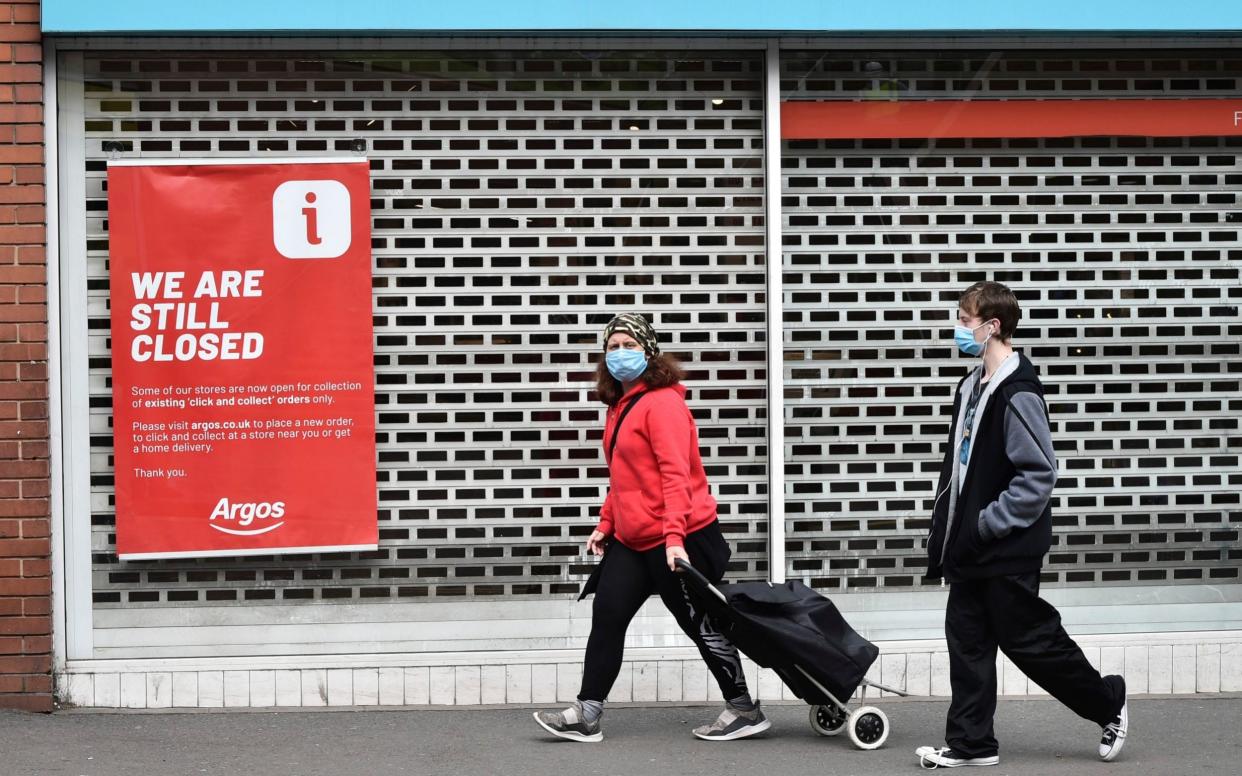Second wave ‘risks double-dip recession’

Local lockdowns have put the brakes on recoveries in Covid-hit areas, the latest data is signalling, prompting warnings from economists that a second wave risks causing a double-dip downturn.
Live economic signals tracking movement and spending indicate activity in certain cities has been dampened by new restrictions to tackle outbreaks. Economists said there was now a “significant risk” of a W-shaped recovery, or double-dip recession, as a second wave threatened to combine with mounting Brexit worries and rising unemployment.
Fears of mass job losses ahead of the furlough scheme’s end have also been stoked by rocketing online searches on redundancies and workers seeking advice. More than 10m Britons are facing tougher restrictions with other areas thought to be on the brink of new growth-dampening measures.
Regional data collected by Centre for Cities suggests that reimposing restrictions has stalled or even reversed many cities’ recoveries as more areas roll back reopenings. The bounce back in footfall faltered in Aberdeen after new measures were introduced, falling from 75pc of normal levels down to below 50pc.
In Manchester footfall has stalled at half of pre-virus levels in the last month while the restrictions in Leicester caused spending to drop back down to a fifth of normal levels after a brief recovery following the national lockdown.
“The tightening in restrictions is economically important,” warned Sanjay Raja, Deutsche Bank UK economist. “Stricter social restrictions will weigh on the UK’s recovery. This is one reason we expect the recent GDP surge to be short-lived.”
The UK is expected to enjoy a record-breaking rise in GDP in the third quarter compared to the previous three months as the economy bounces back from a 22pc slump in the first half of 2020. But GDP could slip back by more than 2pc in the fourth quarter even if a full lockdown is avoided but local restrictions gradually become tougher and widespread, economists at ING estimated.
A return to a national lockdown would cause output to slump by almost 8pc, they said.
“If as we get into October we start to see restrictions being reimposed, we definitely could get that double-dip recession,” warned Andrew Wishart, UK economist at Capital Economics, calling it the “biggest risk” to the outlook.
“It would slow the recovery further out. Investment looks pretty awful already but it would create even more uncertainty for businesses.”
Philip Rush, chief economist at research firm Heteronomics, agreed there was a “significant risk” of another pullback if there were widespread local lockdowns or public behaviour turned cautious. He warned: “Then you would end up with GDP falling even though we are still well short of regaining the pre-Covid peak. If we were to see anything vaguely resembling what we had last spring, many businesses would not be able to cope with it.”
A surge in unemployment would also weigh heavily on the recovery. The number of Britons searching for phrases including redundancy – considered by economists a leading indicator on job losses – hit a record high in July and remained elevated in August, according to Pantheon Macro.
Citizens Advice also saw a 70pc increase in visits to its redundancy page on Wednesday compared to the same day last year.


